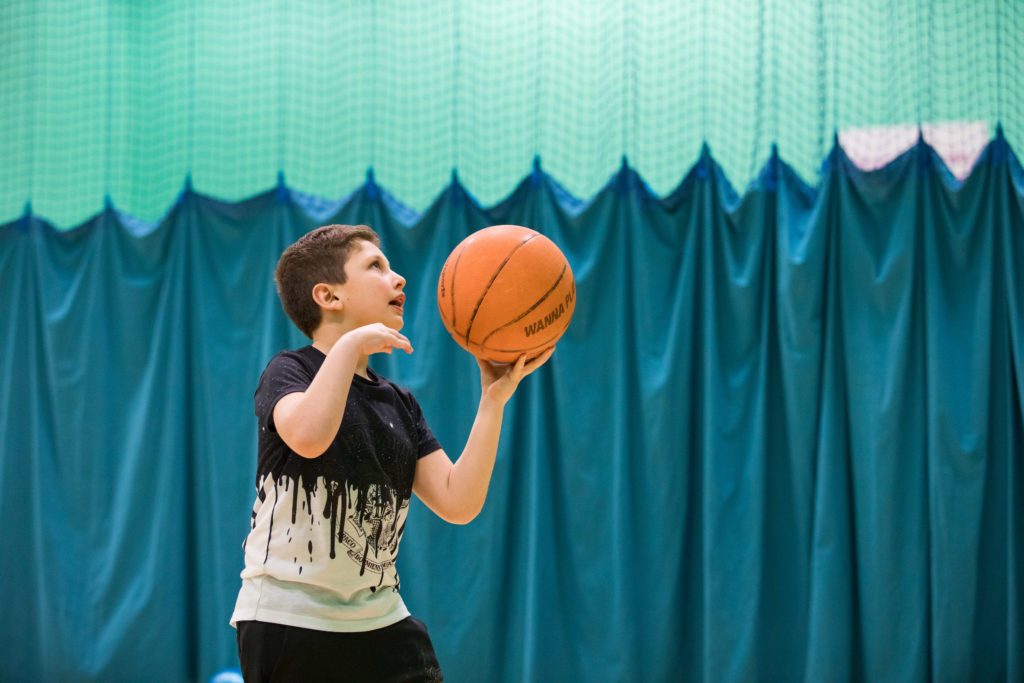Supporting siblings
5 mins read
This advice applies across the UK.
Parents often talk to us about the importance of siblings and the difficulties that can arise for the siblings of a disabled child. These challenges rarely stop the relationship siblings have with their disabled brother or sister being one of the most important in their lives.
In this article
Limited time and attention from parents
- Every so often put the needs of siblings first and let them choose what to do.
- Decide on certain times you’ll dedicate to siblings individually, for example bedtime or day trips once a month.
- Try to find activities that the family can enjoy together, but also other activities to enjoy seperately so each child has something special.
- Try to arrange short term care so you can attend important events with siblings, like sports day.
- Sometimes take your disabled child along to their sibling’s event: siblings supporting each other works both ways.
Confusion about their sibling’s disability
- Learn to recognise behaviour that expresses anger or frustration at their disabled sibling.
- Talk to your children about disability so they know that no one is to blame for their brother or sister’s difficulties.
- Encourage them to see the similarities they have with their sibling. Draw pictures of each family member and look at their strengths and weaknesses.
- Meet other families who have a disabled child so your other children see that disability is an everyday part of life and not unique to their family.
Worry about bringing friends home
- Talk with your child about how they might explain their brother or sister’s disability to a friend.
- Encourage but don’t expect siblings to always include the disabled child in their play or activities.
- Let them retreat to their bedroom, and when they’re older you can think about letting lock the door.
- Acknowledge siblings’ negative feelings about their brother or sister and talk about the feelings of guilt they may feel. Explain that everyone gets angry with other family members sometimes.
Stressful situations at home
- Encourage siblings to develop their own social lives.
- Some siblings find it helpful to meet other young carers to share difficult emotions in a supportive environment. There are young carers support organisations across the UK.
- Some siblings may prefer to talk to someone outside of the family. Your GP may be able to recommend a suitable counsellor, or you can visit the Counselling Directory website.
Sibling tips from other parents
We asked some parents what advice they’d pass onto others, and this is what they said.
- Don’t get down about sibling troubles – your children can gain and learn from difficult experiences.
- Join a parent support group – they really help.
- Tell the child’s school if they’re having trouble adapting to having a disabled sibling.
- Keep the siblings informed about their brother or sister’s disability.
- Allow children to speak their mind, even if you’re not always comfortable with what they say.
- Don’t put pressure on your non-disabled children – it might take them time to fully understand the situation.
UK-wide suport
YoungSibs supports young people growing up with a disabled brother or sister. They provide information, advice, workshops and training.
Over the Wall runs camps for siblings of those affected by serious health challenges.
Mental Health Toolkit Full CT Colour codes – A resource for professional youth workers working with young carers.
Young Carers in Schools (England only) – Run jointly by Carers Trust and The Children’s Society, the programme works with schools across England to share good practice, provide relevant tools and training, and celebrate the great outcomes many schools achieve for young carers.
Support in Scotland
The young Carer Grant is a yearly payment of £390.25 for young carers in Scotland. To be able to get Young Carer Grant, you must be 16, 17 or 18 years old.
The Young Carers Package is part of the Scottish Government’s commitment to recognising the contributions of young carers across Scotland. The package includes digital vouchers, prizes to win, days out and unique experiences. Aim to support you to make the most of your free time and allow you to feel supported in your caring role. The treats change regularly. To sign-up – If you’re aged 12 or over, you can access the package by signing up for Young Scot Membership. Once you’re signed up, you can register for the Young Carers Package and access your treats!
Young Carers Transitions – Young Scot have a range of videos focussing on key transitions for young carers including moving from primary to secondary school, applying for university and moving into employment
Local Carers centres often run young carers support groups. For example North Argyll Carers Centre run after school clubs during term time where young carers can do homework, eat healthy food, play games and talk. They also go on activities during school holidays, residential breaks and boat trips.
Young Carers in Schools – Challenge Scotland –works with schools across Scotland to share good practice, provide relevant tools and training, and celebrate the great outcomes many schools achieve for young carers.
The Scottish Young Carers Services Alliance (SYCSA) is a network of local young carers services across Scotland and one of the National Carer Organisations. The SYCSA is hosted by Carers Trust Scotland. Currently there are 51 local carer organisation members providing direct face to face support to young carers, and a range of information videos on their website.
Related information
Parent guide: Siblings
Download now
Local support & legal advice
Information about the help available in your area, from local advice organisations to parent support groups.
Read more
Bullying
Not all children experience bullying. If you find out your child is being bullied, there are ways to support them. In this…
Read more